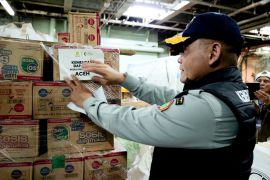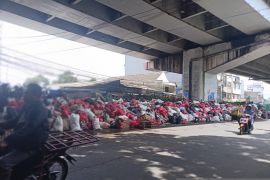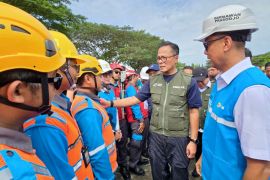"It would be better for Indonesia to thoroughly reconsider its intention to join the TPP. After all, we have joined the Regional Comprehensive Economic Partnership Agreement (RCEP) among the ASEAN and its trade partners, including the United States," the ambassador stated here on Thursday.
Soegeng noted that Indonesias keenness to join the TPP would not affect its sound relations with China, but it should first thoroughly study what the TPP is and its contribution to Indonesia, including ways to protect national interests and to create prosperity for the people.
"Any forms of regional economic integration that Indonesia is willing to join in should provide concrete contribution to achieving national objectives, such as the intent to bring prosperity to its people. If we will only serve as a market, we cannot become advanced," the senior diplomat emphasized.
Soegeng further remarked that Indonesia should focus on improving its industrial structure and export sector.
"We should not solely rely on micro and medium businesses, or on commodities. Indonesia should view its products to be part of the global value chains (GVCs)," he asserted.
"As an example, the Indonesian industry is one of the suppliers of components used by the technology giant Apple, such as the components for iPads and iPhones, although it is only their screws and rubber pads. This would be better than merely joining several forms of regional economic integration and only becoming a destination market for the products of other nations and major countries," Soegeng affirmed.
"So, Indonesia had better improve its industrial structure beforehand. China has committed to halting the production of imitation goods from 2017," the envoy stated.
If Indonesia is willing to benefit from the TPP, it would be in the countrys interests to cooperate in the initial stage with several ASEAN members, such as Malaysia, Singapore, Brunei Darussalam, and Vietnam that had joined the TPP, while putting in order its industry at home.
The TPP is initiated by the United States and the Regional Comprehensive Economic Partnership Agreement (RCEP). It is a free trade agreement joined in by 17 Asia-Pacific countries and several ASEAN members: Malaysia, Singapore, Brunei, and Vietnam.
The RCEP is the rival of a similar agreement TPP initiated by the United States, where China is not a member. (*)
Editor: Heru Purwanto
Copyright © ANTARA 2015











